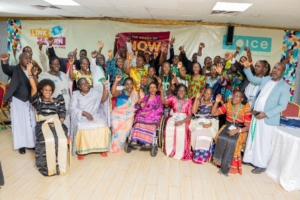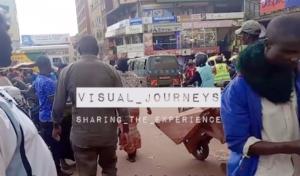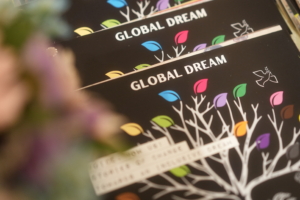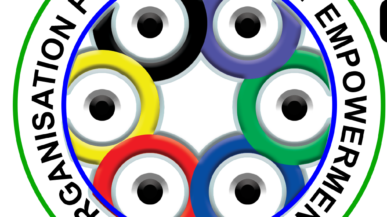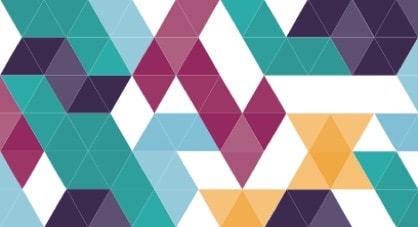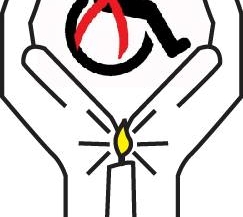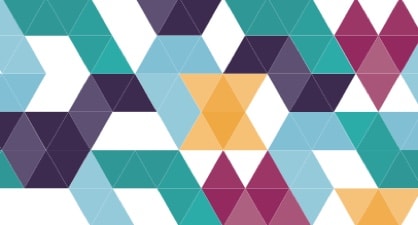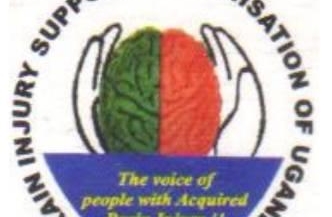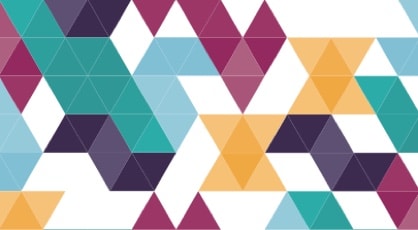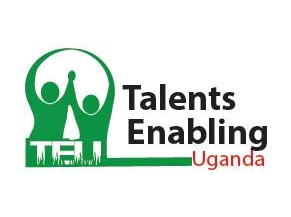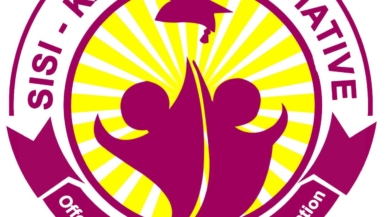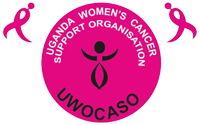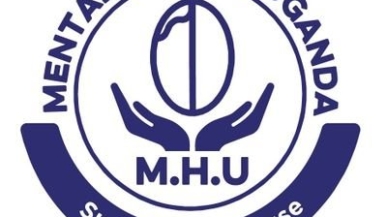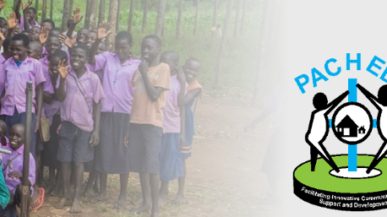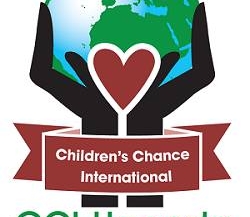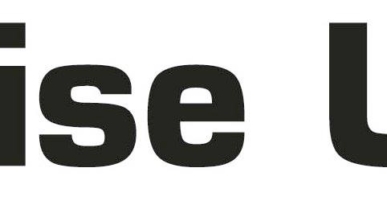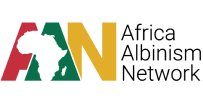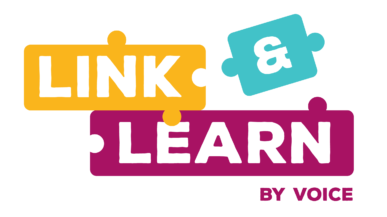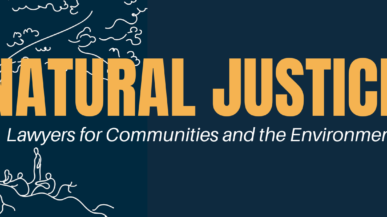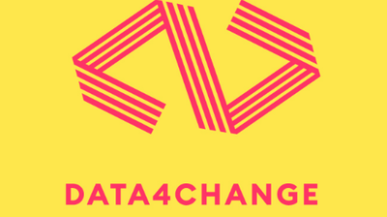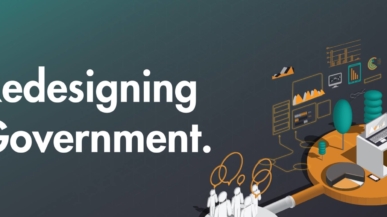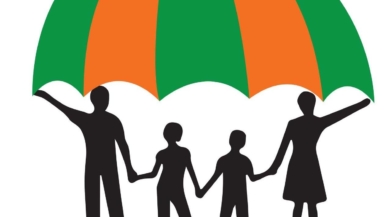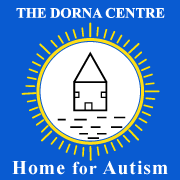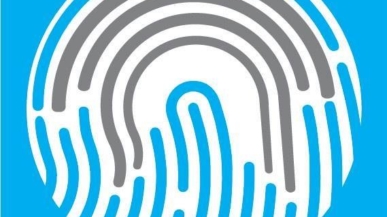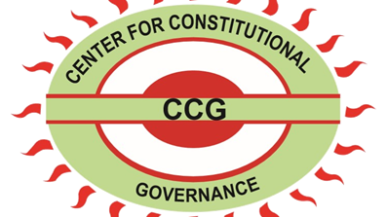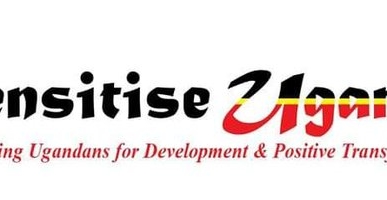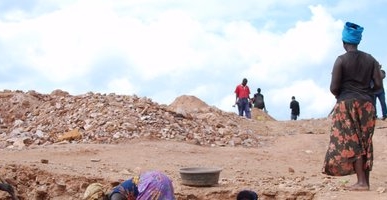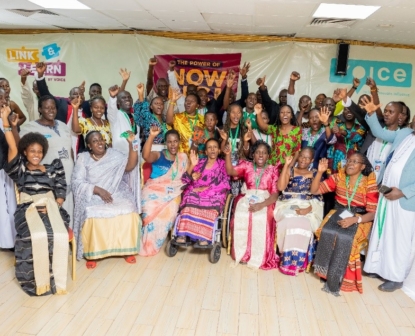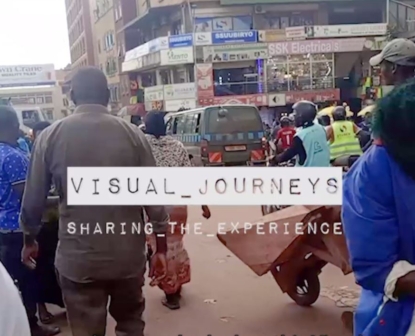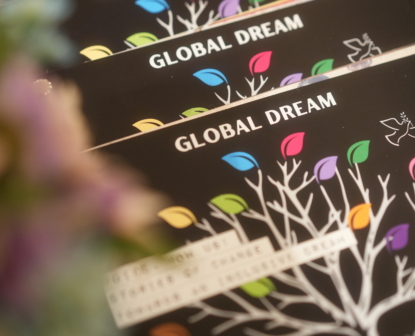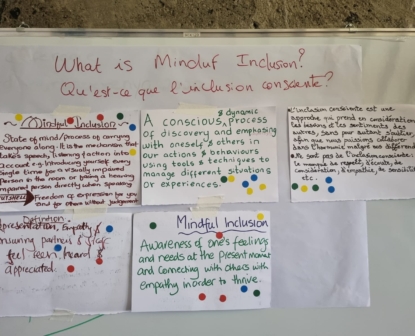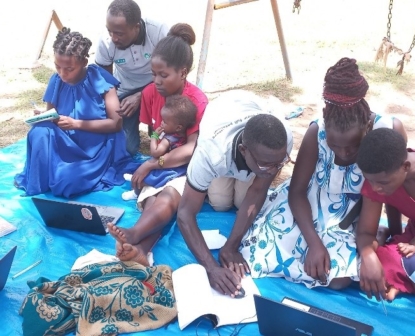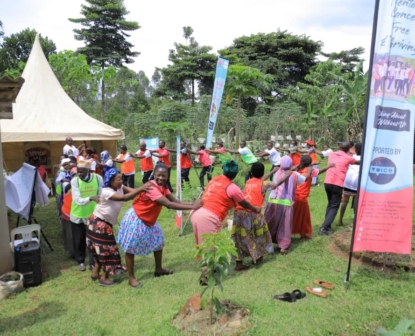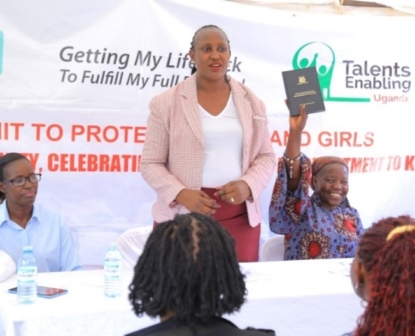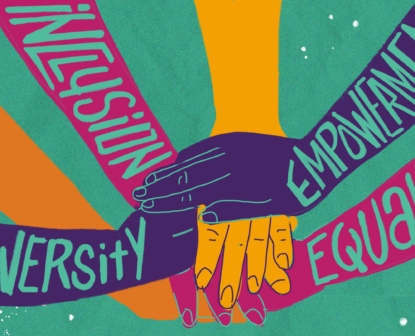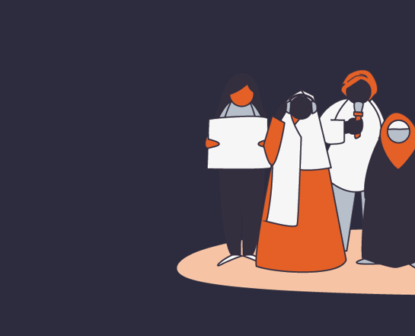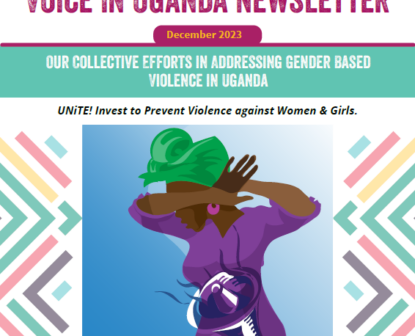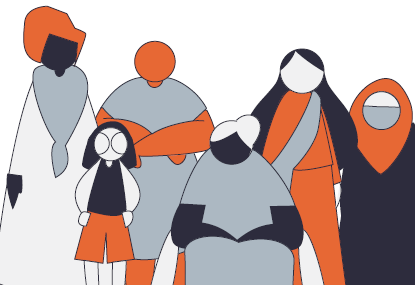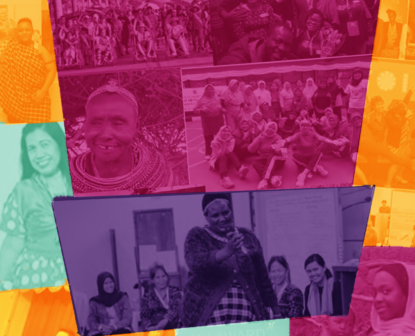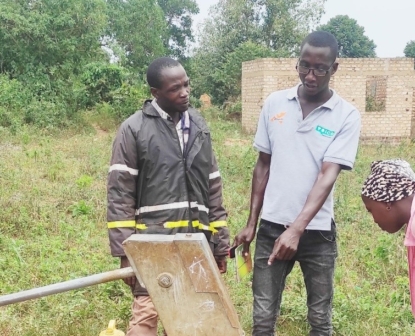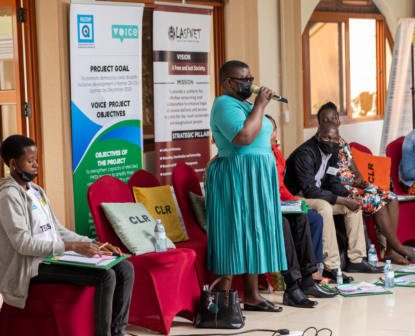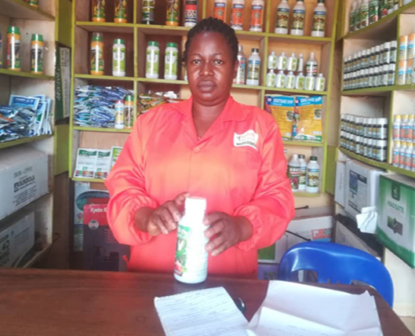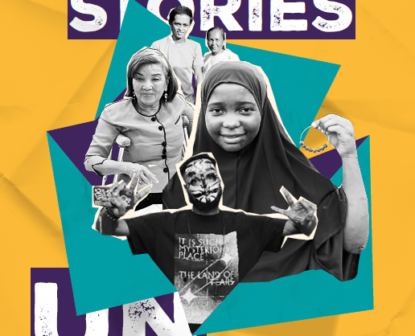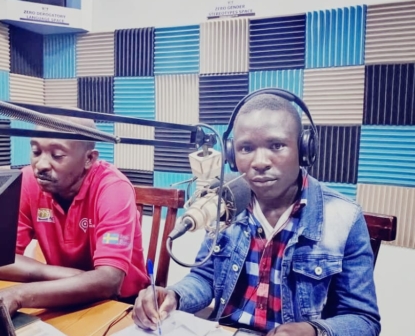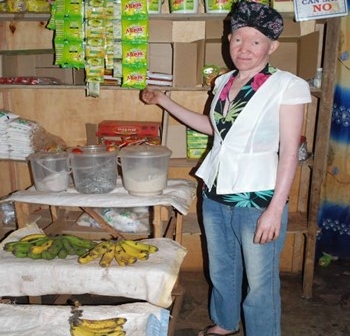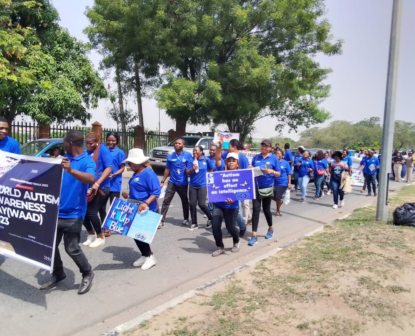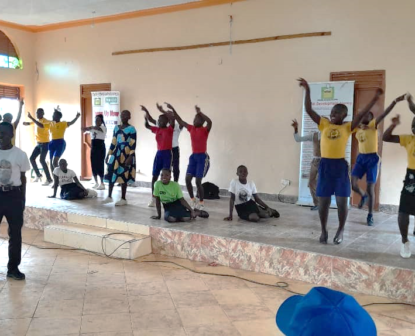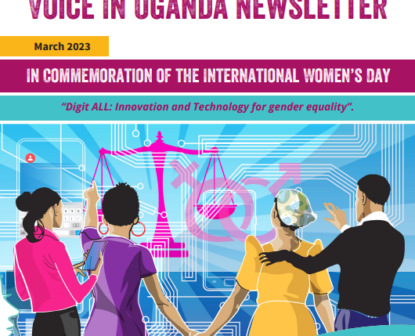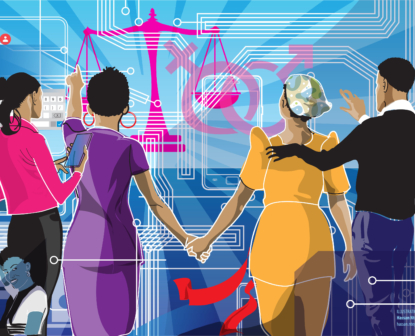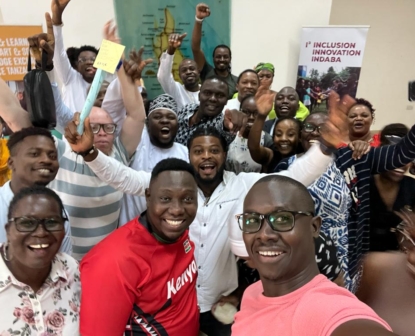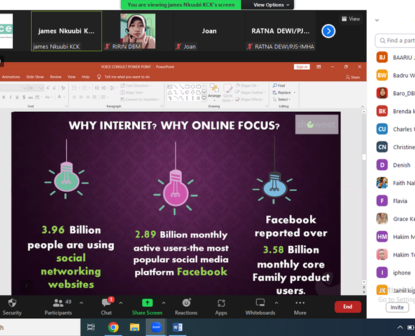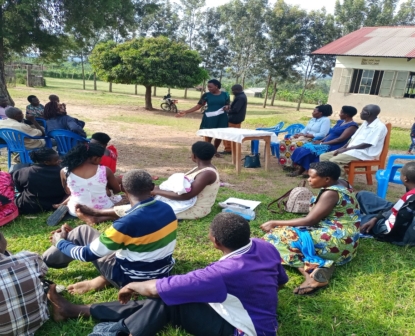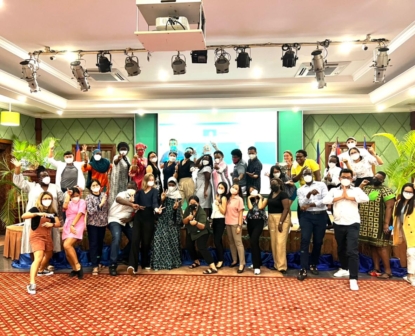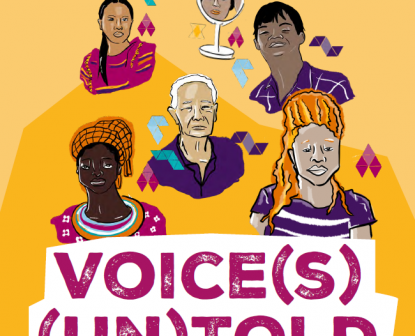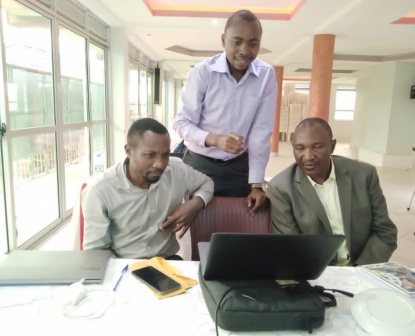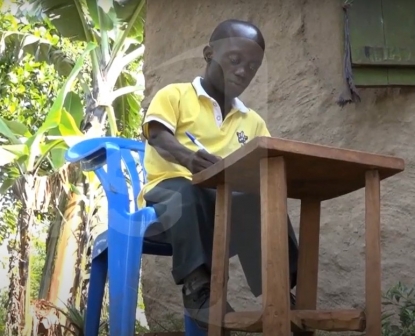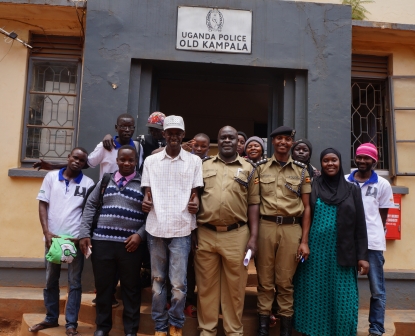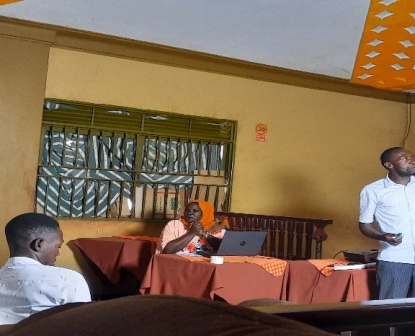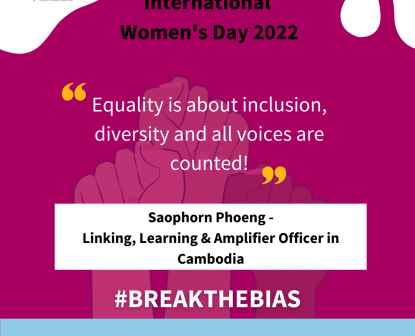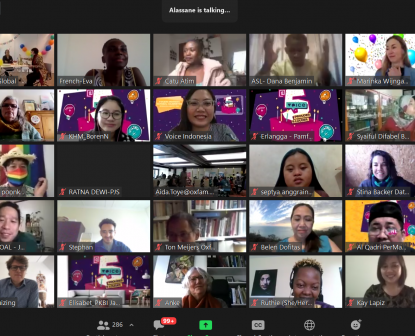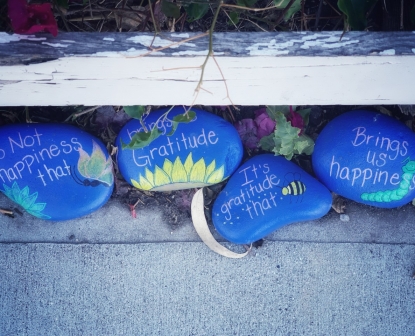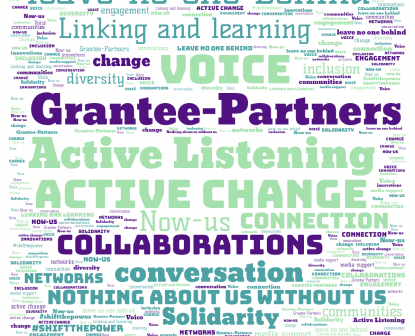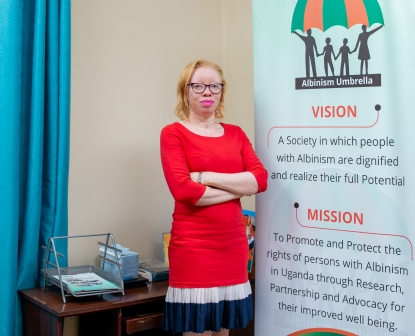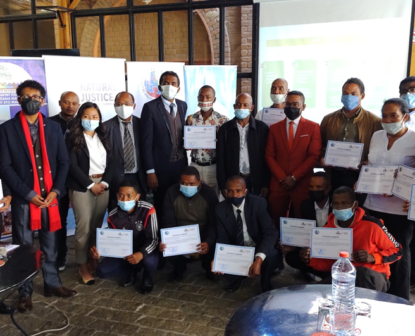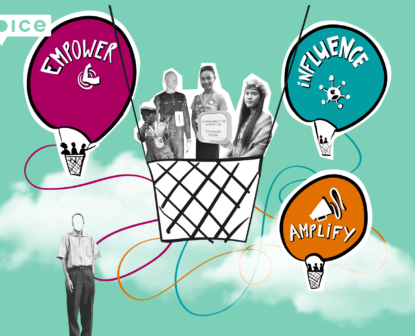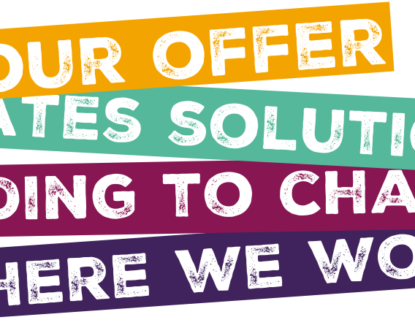
Uganda
Grant distribution
Latest Voices
Open Calls for Proposals
 33 Empowerment grants
33 Empowerment grants  19 Influencing grants
19 Influencing grants  11 Innovate and learn grants
11 Innovate and learn grants  2 Sudden opportunity grants
2 Sudden opportunity grants -
No Open Calls at the moment in this country. Come back later!
-
Uganda is geographically divided into four regions including North, East, West and Central. These regions are made up of 134 districts that each have urban, peri-urban and rural areas. We live in a rapidly changing world – some changes may be for the better – others not so much. In order to continue to ground Voice in local lived realities, a country context analysis is organised every other year, engaging many stakeholders, grantees and rightsholders. The analysis is used to frame Calls for Proposals, to support the applications of grant-seekers and to advance the overall learnings. Below follows a summary of the exercise conducted in 2022, capturing the many views and perspectives of Ugandans. The summary is structured by presenting the big picture and slowly but surely to zoom in on the voices and aspirations of the rightsholders and to zoom out again by sharing the way forward for Voice. This page can also be downloaded at the bottom of the page. A full report and previous versions can be availed to you upon request. Please contact Uganda@voice.global
Zooming Out
The big picture
-
The Human Development Index is an index that combines data on life expectancy, education, and per capita income to rank countries. The HDI ranking has moved up a few spaces from 163 in 2014 to 159 in 2019.
-
The IHDI measures the human development cost of inequality, or the overall loss to human development due to inequality. The closer to 1 the more equal a society is. The IHDI can inform policies towards inequality reduction. Inequality has reduced marginally in recent years despite economic growth.
-
The GII is an inequality index, measuring the human development costs of gender inequality economically, health- and education-wise. The closer to 0 the better. Gender inequality has only marginally reduced in the country between 2014 and 2019.
-
According to the independent Civicus Monitor which started in 2016, civic space continues to be repressed in Uganda.There was no change in the status, although certain groups experience increased insecurity and political exclusion, physical attacks and imprisonment. These were among others LGBTIQA+ people and human rights defenders. They are not freely operating.
Behind the numbers
Uganda’s population growth rate is considerably high at 5.8%, signifying dire consequences due to a widening poverty gap, economic stagnation, and inequitable social service delivery among others.
The literacy rate for persons aged 10 years and above was estimated at 76% and was higher for males (81%) than females (72%). The adult literacy rate of persons aged 18 years and above stood at 72% signifying improved knowledge and skills. Most of the working population is in employment (52%) or active in subsistence agriculture (47%), and 0.3% in unpaid apprenticeships.
More health facilities from district to sub-county level have been built but are not well equipped with medical supplies and the cost of treating people without health insurance is very high.
Political shifts
The 2021 general elections were held but within a very restrictive environment due to COVID-19. Uganda has since experienced widespread violations of rights, political repression/ clampdown on freedom of expression both digital and physical. Representation of all interest groups from the national level to the sub-county has been seen. However, loopholes that occurred before, during and after elections were also noted which undermined the credibility of country’s elections. This includes killings of civilians on the 18 November 2020, imprisonment of opposition members and electorates which caused a chilling effect on civic participation. The elections were also marred with a lot of resources (finances) from the ruling party to manipulate the elections which brought about distrust in the election.
There is heightened political repression/ or clampdown on freedom of association and expression (physical and digital) by use of laws like the Public Order Management Act (POMA), 2013, the Computer Misuse Act, and the Anti-Money Laundering Act, 2017. Increasing militarization and use of security agencies in public affairs that matter to people affects development. For example, regarding oil extraction and government programmes like Operation Wealth Creation. The funding-terrain in the country continued to shift largely on account of the government. Major funding organizations such as the Democratic Governance Facility (DGF) and some NGOs central to promoting electoral reforms, civil and human rights were closed. Individuals and Civil Society Organizations (CSO’s) that are human rights defenders have been harassed by security agencies, tortured, others frozen down and closed. These actions show the continuous normalization of security violence in the country, and this influences the environment within which the rightsholders operate.
Economic shifts
Uganda has experienced slow economic growth (4.9% registered in 2021) because of COVID-19 which involved locking down many sectors of the economy. This increased the poverty situation of the country. There is hiking of prices of some essential goods and services including washing soap, sugar, fuel, cooking oil and services like transport fares and education (fees structure) making the poor more vulnerable. The levels of human trafficking disguised as labour externalization have also increased as well as the halting of fishing activities on Ugandan lakes especially Lake Victoria by the Fisheries Protection Unit over alleged illegal fishing continued to affect the socio-economic well-being of fisher-folks largely in central Uganda (Buganda) and Busoga regions.
Uganda’s debt levels have risen to the extent that the budget for the financial year 2021/22, is into debt interest payment of over 5 trillion shillings. This means that the rightsholders are likely to experience high tax burden on basic necessities and to receive only limited services in the near future in order for the country to pay off the accumulated debt interest.
Social shifts
The uncertainty surrounding the Social Assistance Grant for Empowerment (SAGE) fund for the elderly due to lack of funding since March 2021 has a negative effect on older persons. The uncertainties around land dispute resolution continue to negatively impact the lives of different rightsholders. The increased levels of Gender Based Violence due to patriarchal nature of society has continued to subject women to pain, economic dependence, domestication. Gender-based division of labour is also prevalent, and women are confined to the peripheries of decision making in many communities in Uganda.
“Culturally a woman is supposed to stay at home and do domestic work which make her not to get information and a chance to execute her rights.” Participant in a Focus Group Discussion of Women Councillors in Uganda’s Hoima District.
The problem of cattle rustling in Karamoja region also resurfaced. As a result, many businesses and households have been destroyed and many people have lost their lives as the security agencies engaged with the cattle rustlers who continue to roam the region disrupt the way of life of the innocent local people.
(Invisible) Power shifts
Ugandans continue to experience uncertainty of the power shifts and its impact on the governance of the country. The succession debate on the current president is gaining steam. However, there is no clear discourse of who is line to succeed the president, and this has led to a lot of uncertainty of the political future of the country, making advocacy and relationship building hard for the Human Rights Defenders and the rightsholders.
There is both political and financial informal power in individual entities with a lot of money that have had an influence on the different rightsholder groups. Power is shifting internally through capture and infiltration by individuals, institutions, and multinational corporations. For example, the Minister of Finance on behalf of Government entered into an agreement with the Board Chairperson of an Italian investor to establish a coffee processing plant at Kampala industrial and business park. The same businesswoman took the lead in the Lubowa International Specialized Hospital project which has not been completed to date. There are questions about why the Government is dishing more of the meagre public resources to someone who has failed to deliver on the earlier agreement.
There is concentration of power in Resident District Commissioners (RDCs) and Resident City Commissioners (RCCs). People holding unto these offices are meant to act as a link between the central government and local people. However, many are corrupt and seen to be exerting too much power and influence in relation to district resource allocation and distribution which has had a negative impact on the lives of rightsholders.
Covid-19 related shifts
COVID-19 has slowed down economic growth of the country, worsened joblessness, and unemployment. It revealed the dysfunctional nature of the health sector, the level of economic imbalances between the ‘haves’ and ‘have-nots’, the living conditions of the urban poor where majority could not survive on their own, power imbalances in homes which led to high rates of domestic violence especially in cases where the men failed to provide and support their families and resorted to domestic violence.
COVID-19 affected social service delivery. In the judiciary, magistrates could not sit in court to dispense justice as a measure to control COVID-19, which led to delayed access to justice for many rightsholder groups. The President of the Republic of Uganda using his Prerogative of Mercy, pardoned 833 prisoners in April 2021 to curtail the spread of COVID-19 by decongesting the prison facilities. In education sector, all school going age children couldn’t access school for two years which led to high rate of teenage pregnancies as many girls were married off because of being redundant at home especially in rural areas and others were raped. This contributes to highly dependent, burdened elderly group and girl children.
“There are high rates of teenage pregnancy in Busoga region, with Kamuli having the highest cases due to closure of schools during COVID but also because of poverty in the area which forces many young girls to engage in survival mechanisms of sleeping with aged men for provision.” Key Informant Interview with UNHRC Regional Representative in Eastern Uganda.
COVID-19 also brought about some benefits such as the review of the National Social Security Fund (NSSF) Act 2021 leading to mid-term access of 20% of savers’ benefits. This has somewhat helped to reduce or offset what would have been the likely situations for families that had undergone wealth disruptions of COVID-19.
Zooming in
Voices behind the picture
Findings from the contextual analysis update show there are some emerging issues that are intersectional in nature which include: gender, poverty, geographical location, social service delivery, factors of production, and HIV/AIDS among others that have a bearing on its rightsholder group.
Elderly and Youth
According to the Uganda Bureau of Statistics (UBOS), a total of 3.5% of elderly persons in Uganda suffer from several challenges ranging from poor health, stigma and discrimination, inability to access social services particularly health. There has been an under representation of issues affecting the elderly which are also re-emerging as key effects and risks for older persons in Uganda. For example, COVID-19 lockdowns severely affected the welfare of older persons in the forms of physical wellbeing, psychological and sexual violence, financial abuse, and neglect leading to loneliness and mental health challenges. We continue to witness discrimination against elderly persons in some government programmes and the continually skewed budget that is not prioritizing their basic necessities like health care continue to put them in a more vulnerable state.
While the population of youth in Uganda seems to be rising, there is no matching improvement in their well-being. The context analysis update 2022 reveals that the youth are vulnerable and getting exposed to even more risks. 25% of Ugandan teenagers become pregnant by age 19, nearly half of Ugandan teenagers are married before they turn 18 and as a result, young mothers in Uganda attempt unsafe abortions, face poverty, fail to continue with schooling, and are at risk of poor maternal and child health. Children suffer under exploitative work conditions, sexual exploitation, and child labour especially in urban and peri-urban parts of Uganda. 62% of youth are unemployed and 45% of them have reported that they have taken drugs and alcohol due to frustrations of employment. Youth have fallen victim to corruption from political leaders who deprive them of government support but also experience limited political participation due to threats and intimidation by adults in political offices who label them as anti-government and unfairly sent to prison which has grossly discouraged the rest.
Indigenous Groups and Ethnic Minorities
Whereas Uganda is home to many diverse ethnic and linguistic groups, some ethnic minority groups continue to be excluded. As evidenced during the recently concluded Universal Periodic Review UPR by the United Nations Human Rights Council, the minority ethnic groups in Uganda face significant challenges such as a weak legal framework in as far as protecting their needs is concerned. Uganda has not yet put a framework into place to implement international human rights provisions for the protection of minorities and the political representation of minority groups is still severely limited. They are still not able to lobby and influence for improved conditions of their people. Ethnic minority groups remain largely vulnerable to exclusion, discrimination, and high levels of poverty. They are at risk of “statelessness”, cannot access government programmes. Access to education and health services remains unimaginable.
“We want to see the government commit itself and give a sincere report on what they have so far done on securing the rights of ethnic, religious and linguistic minorities and indigenous people.” Key Informant Interview with the Regional Manager of Minority Rights Group International.
Lesbian, Gay, Bisexual, Transgender and Intersex (LGBTI) persons
In Uganda the lesbian, gay, bisexual, transgender, intersex and queer plus (LGBTIQ+) community are one of the most excluded rightsholder groups. This is because the country’s cultural and religious norms largely prohibit same-sex relations and disregard it as immoral. In May 2022, 44 people were arrested under the guise of violating COVID-19 regulations for attending a gathering in a shelter, which the police claimed was a same-sex marriage. LGBTIQ+ persons are at great risk of unemployment because they are socially excluded from society. When it comes to gender markers at health facilities, the category of LBQ women is not included, psychosocial/or psychiatric doctors do not provide services to LGBTIQ+ persons because of homophobia and finishing school for LGBTIQ+ persons is hard because they lack a sense of belonging. The further you move away from urban centres, the more exclusion that exists for LGBTIQ persons. In Kampala, it is easier to find a drop-in-centre (DIC) safe space to receive services but harder for people in villages because most health facilities in villages are religious based and do not provide condoms and lubricants.
People with Disabilities (PWDs)
PWDs constitute 4.5 million (12.4%) of the total population (UBOS 2016) and since 2016, there have been several improvements in the wellbeing of PWDs in Uganda. There is a robust legal framework titled the Persons with Disabilities (PWD) Act 2020 that supports the representation of PWDs from the national level to the sub-county level of both women and women, and the establishment of the National Council for PWDs. There is a special grant for PWDs to improve their livelihoods and 10% out of the total budget for the Parish Development Model (PDM) has been allocated to persons with disabilities. Whereas there has been political progress, PWDs still suffer several forms of exclusions within their communities including unemployment, poverty as well as stigma and discrimination.
Women facing Exploitation Abuse and Violence (WEAV)
Uganda has an approximate population of 45.74 million, 50.71% of whom are women. Some progress made towards gender equality is noted particularly in political representation, for example during the 2021 elections. Many women took up political positions in parliament and in local government levels. However, women in Uganda are still far from attaining complete gender equality and empowerment. Many women in Uganda are still no able to access financial resources to either start or grow their businesses. Unemployment among women has been a big problem. More women (85.6%) than men (84.5%) are employed in the informal sector. Women lack access to productive land yet 80% are engaged in agriculture. They still fall victims to gender-based violence, while cultural beliefs in Uganda still work against women as young women are expected to get married and bear children.
“Women cannot sell their own produce that they grow in gardens, they are supposed to harvest and give the produce to the husband who sells it and decides how much the wife deserves. A woman’s contribution in a home is not considered of any worth.” Focus Group Discussion in Uganda’s Lira District.
Their aspirations
According to this context analysis update 2022, there are aspirations that are cross-cutting and intersectional to the different rightsholder groups. These include the need for economic empowerment and independence to reduce dependency on relatives, caregivers, government, and development partners, fighting stigma and discrimination as well as vocational skills training and empowerment.
Elderly and Youth
The elderly desire to be protected, especially elderly persons with disabilities, including from physical violations (i.e., beaten, raped, denied food and other basic necessities). The elderly further seek the creation of structures such as the ‘Older Citizens Monitoring Groups (OCMGs), creation of a dedicated desk at health facilities for elderly persons (especially women and elderly with disabilities) and for support to meet their medical needs on a timely basis without waiting in long lines. Older persons also aspire to be represented at various levels (i.e., national and local government) to have their issues and interests considered.
Youth seek the design of programmes that support retention of the girl child and other youth in schools, adoption of approaches and tools like sports and entertainment for educating the youth, employment opportunities, regulation of child labour and sensitization and awareness creation on not only their rights but also many other issues that affect them as young people.
Indigenous Groups and Ethnic Minorities
The main aspiration of the indigenous and ethnic minorities is legal recognition by the State, access to social services such as education and health without discrimination, proper settlement and access to land and access to productive resources and opportunities.
Lesbian, Gay, Bisexual, Transgender and Intersex (LGBTI) persons
LGBTIQ+ persons seek safe spaces and security, access to designated health services including mental healthcare, having designated shelters, advocacy for recognition, societal acceptance and observation of their rights as human rights.
People with Disabilities (PWDs)
PWDs aspire for full participation in all aspects of life, desire for effective representation, user-friendly infrastructure, disability etiquette and home-based communication trainings to encourage use of non-discriminatory language and need for societal acceptance at all levels.
Women facing Exploitation Abuse and Violence (WEAV)
Women seek legal awareness on land rights, access to productive assets (land and capital), stopping negative socio-cultural norms, psycho-social shelters for GBV victims, access to affordable health care including SRHR, education policy changes to cater for girls after childbirth and proper regulation of domestic workers’ sector.
Zooming out
Fostering change
- The worsening political and socio-economic situations and outbreak of the COVID-19 pandemic with its associated negative consequences of the past 2-3 years in Uganda have fundamentally changed the ‘way of life’ for many Ugandans including Voice rightsholder groups. It is imperative that Voice takes note of these developments and the insights from this context analysis update 2022 to inform the design and implementation of future programming during the rest of the extension phase and post 2024 to ensure lasting change and impact in the lives of rightsholders in Uganda:
- Need for mechanisms to address the short and long-term effects of COVID-19 pandemic on rightsholder groups.
- The worsening socio-economic situation is aggravating poverty and increasing vulnerability for rightsholder groups. Therefore, Voice-supported interventions need to take this into consideration while designing programs aimed at addressing the above situations.
- Balancing the interests of the state (keeping a firm hold on everything at the expense of CSOs’ operations and interventions) against Voice’s aspirations.
- There are new emerging and unique categories of rightsholder groups (e.g., fisher-folk communities (youth and women), survivors of political/ electoral violence, acid attack survivors, torture survivors, survivors of panga welding gangs in areas especially around Kampala, Wakiso, Mpigi and most especially the Greater Masaka region).
- Ensuring equity in service delivery to benefit all rightsholder groups. Some government programs exclude certain rightsholder groups, especially the elderly, women, youth and PWDs.
- Need to integrate mental health interventions during the rest of the extension phase and post 2024. A thematic/ strategic objective on mental health interventions is needed to support the vulnerable groups (rightsholders) struggling with mental health challenges.
- Voice needs to employ a family-empowerment model. Since change starts with individuals in a family setting, promoting a family/ household economic-empowerment model for rightsholders will go a long way in ensuring that Voice support is holistic and covers the family/ household as opposed to individual rightsholders.
- Voice needs to support more skills strengthening of grantees partners on areas such as community engagement, use of media in advocacy, utilisation of ICTs in delivering project interventions especially in the post COVID-19 era, documentation and development of knowledge products, as well as experiential capacity building and sharing through peer support within the country and beyond using activities such as knowledge sharing forums.
-
-
Grants

-
Grantee
![Key and Vulnerable Populations Empowerment Project in Lyantonde]()
Key and Vulnerable Populations Empowerment Project in Lyantonde
Organisation for Community Empowerment (OCE) -
Grantee
![Baruuli-Banyala for youths’ employment and self-reliance in Kayunga District]()
Baruuli-Banyala for youths’ employment and self-reliance in Kayunga District
Bukolooto Mosque and Community Development Association (BMCDA) -
Grantee
![Standing up for inclusion in social services]()
Standing up for inclusion in social services
Masaka Association of Persons with Disabilities HIV/AIDS (MADIPHA) -
Grantee
![Make Every Voice Heard in Health Services]()
Make Every Voice Heard in Health Services
Center for Disability Rights, Research & Governance (CEDIG) -
Grantee
![Advocacy for Inclusive Employment of Persons with Disabilities in Kayunga District]()
Advocacy for Inclusive Employment of Persons with Disabilities in Kayunga District
Brain Injury Support Organization Uganda (BISU) -
Grantee
![Cancer screening for Ntoroko sex workers]()
Cancer screening for Ntoroko sex workers
Kabarole Hospital Initiative on Women under Exploitation (KHIWE) -
Grantee
![Solidarity with Teenagers – Uganda (SWT-U)]()
Solidarity with Teenagers – Uganda (SWT-U)
Teenage Mothers and Child Support Foundation (TMCSF) -
Grantee
![Youth and Women Economic Empowerment Project]()
Youth and Women Economic Empowerment Project
Voice of Hope and Restoration Outreach Uganda (VOHARO) -
Grantee
![Strengthening Community Participation through Engagement (SCOPE)]()
Strengthening Community Participation through Engagement (SCOPE)
Hope Alert Network for Development and Local Empowerment (HANDLE) -
Grantee
![Women’s Resilience for Gender Equality and rights Promotion (WOREP)]()
Women’s Resilience for Gender Equality and rights Promotion (WOREP)
Partners for Community Health and Development Organisation (PACHEDO) -
Grantee
![Strengthening Participation and Accountability through Community Engagement (SPACE)]()
Strengthening Participation and Accountability through Community Engagement (SPACE)
Gulu Women Economic Development (GWED-G) -
Grantee
![Hoima District Union of Persons with Disabilities (HUDIP)]()
Hoima District Union of Persons with Disabilities (HUDIP)
Hoima District Union of Persons with Disabilities (HUDIP) -
Grantee
![YWDs empowerment for Political Participation]()
YWDs empowerment for Political Participation
Uganda National Action on Physical Disability (UNAPD) -
Grantee
![Connecting Voice(s) in Uganda]() Linking and Learning Facilitation
Linking and Learning FacilitationConnecting Voice(s) in Uganda
Legal Aid Service Providers Network (LASPNET) - Call for Proposal
Self-led Influencing in Action!: Uganda Influencing Grant V-20146-UG-IF
closing date: 31 Jan 2021Closed - Call for Proposal
Coming Together, Moving Forever!: Global Influencing Grants V-20152-XG-IF
closing date: 15 Jan 2021Closed - Call for Proposal
It’s Still Our Turn To Talk! Global Influencing Grant V-20151-XG-IF
closing date: 15 Dec 2020Closed - Call for Proposal
Voice(s) Connected & Amplified in Uganda: Linking & Learning Facilitation V-20145-UG-IL
closing date: 15 Nov 2020Closed -
Grantee
![Rapid Research For Agile Policy Making (RRAP)]()
Rapid Research For Agile Policy Making (RRAP)
Icebreakers Uganda, Freedom and Roam Uganda, Tranz Network Uganda
 Grantee
Grantee![Key and Vulnerable Populations Empowerment Project in Lyantonde]()
Key and Vulnerable Populations Empowerment Project in Lyantonde
Organisation for Community Empowerment (OCE)Grantee![Baruuli-Banyala for youths’ employment and self-reliance in Kayunga District]()
Baruuli-Banyala for youths’ employment and self-reliance in Kayunga District
Bukolooto Mosque and Community Development Association (BMCDA)Grantee![Standing up for inclusion in social services]()
Standing up for inclusion in social services
Masaka Association of Persons with Disabilities HIV/AIDS (MADIPHA)Grantee![Make Every Voice Heard in Health Services]()
Make Every Voice Heard in Health Services
Center for Disability Rights, Research & Governance (CEDIG)Grantee![Advocacy for Inclusive Employment of Persons with Disabilities in Kayunga District]()
Advocacy for Inclusive Employment of Persons with Disabilities in Kayunga District
Brain Injury Support Organization Uganda (BISU)Grantee![Cancer screening for Ntoroko sex workers]()
Cancer screening for Ntoroko sex workers
Kabarole Hospital Initiative on Women under Exploitation (KHIWE)Grantee![Solidarity with Teenagers – Uganda (SWT-U)]()
Solidarity with Teenagers – Uganda (SWT-U)
Teenage Mothers and Child Support Foundation (TMCSF)Grantee![Youth and Women Economic Empowerment Project]()
Youth and Women Economic Empowerment Project
Voice of Hope and Restoration Outreach Uganda (VOHARO)Grantee![Strengthening Community Participation through Engagement (SCOPE)]()
Strengthening Community Participation through Engagement (SCOPE)
Hope Alert Network for Development and Local Empowerment (HANDLE)Grantee![Women’s Resilience for Gender Equality and rights Promotion (WOREP)]()
Women’s Resilience for Gender Equality and rights Promotion (WOREP)
Partners for Community Health and Development Organisation (PACHEDO)Grantee![Strengthening Participation and Accountability through Community Engagement (SPACE)]()
Strengthening Participation and Accountability through Community Engagement (SPACE)
Gulu Women Economic Development (GWED-G)Grantee![Hoima District Union of Persons with Disabilities (HUDIP)]()
Hoima District Union of Persons with Disabilities (HUDIP)
Hoima District Union of Persons with Disabilities (HUDIP)Grantee![YWDs empowerment for Political Participation]()
YWDs empowerment for Political Participation
Uganda National Action on Physical Disability (UNAPD)Grantee![Connecting Voice(s) in Uganda]() Linking and Learning Facilitation
Linking and Learning FacilitationConnecting Voice(s) in Uganda
Legal Aid Service Providers Network (LASPNET)Call for ProposalSelf-led Influencing in Action!: Uganda Influencing Grant V-20146-UG-IF
closing date: 31 Jan 2021ClosedCall for ProposalComing Together, Moving Forever!: Global Influencing Grants V-20152-XG-IF
closing date: 15 Jan 2021ClosedCall for ProposalIt’s Still Our Turn To Talk! Global Influencing Grant V-20151-XG-IF
closing date: 15 Dec 2020ClosedCall for ProposalVoice(s) Connected & Amplified in Uganda: Linking & Learning Facilitation V-20145-UG-IL
closing date: 15 Nov 2020ClosedGrantee![Rapid Research For Agile Policy Making (RRAP)]()
Rapid Research For Agile Policy Making (RRAP)
Icebreakers Uganda, Freedom and Roam Uganda, Tranz Network Uganda -
-
Link + Learn


Voice Uganda Oxfam Uganda Plot NO. 3459, Tank Hill Road, Muyenga P.O Box 6228, Kampala, Uganda Tel: +256 414390500 Fax: +256 414 510242 uganda@voice.global

